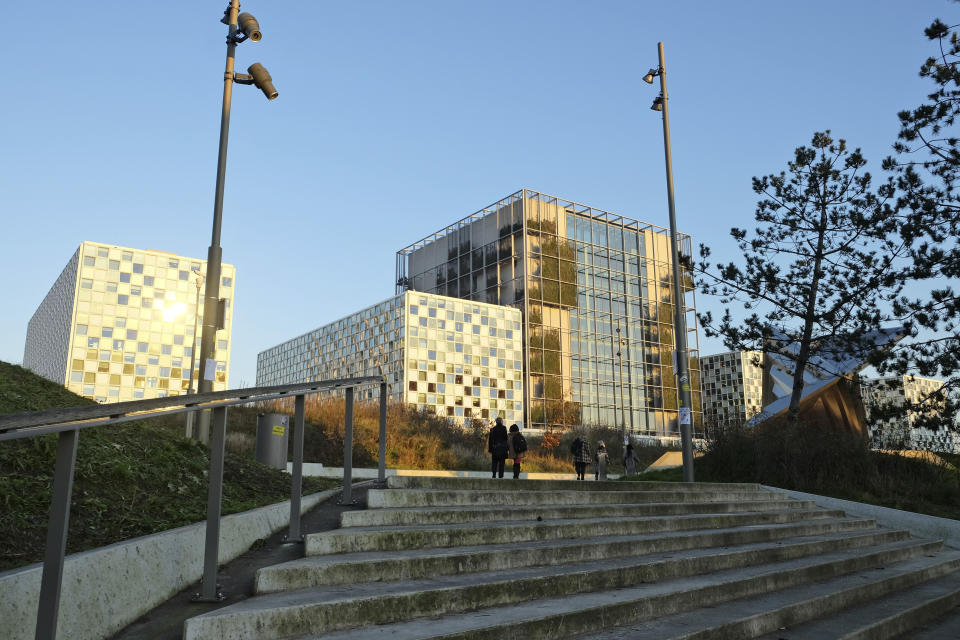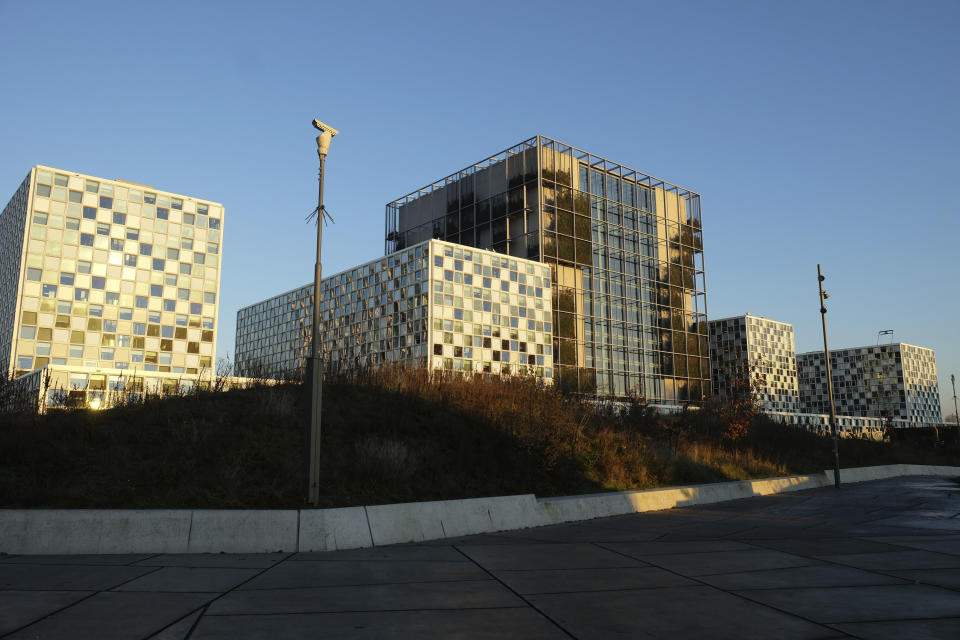Afghanistan probe appeal begins at Hague international court
THE HAGUE, Netherlands (AP) — The International Criminal Court opened a three-day hearing Wednesday at which prosecutors and victims aim to overturn a decision scrapping a proposed investigation into alleged crimes in Afghanistan’s brutal conflict.
Fergal Gaynor, a lawyer representing 82 Afghan victims, called it “a historic day for accountability in Afghanistan.”
In April, judges rejected a request by the court’s prosecutor, Fatou Bensouda, to open an investigation into crimes allegedly committed by the Taliban, Afghan security forces and American military and intelligence agencies.
In the ruling, which was condemned by victims and rights groups, the judges said that an investigation "would not serve the interests of justice" because it would likely fail due to lack of cooperation.
The decision came a month after U.S. Secretary of State Mike Pompeo banned visas for ICC staff seeking to investigate allegations of war crimes and other abuses by U.S. forces in Afghanistan or elsewhere.
“Whether the two events are in fact related is unknown, but for many — victims as well as commentators — the timing appeared more than coincidental,” said lawyer Katherine Gallagher, who was representing two men being held at the Guantanamo Bay detention facility.
The United States is not a member of the global court and refuses to cooperate with it, seeing the institution as a threat to U.S. sovereignty and arguing American courts are capable of dealing with allegations of abuse by U.S. nationals.
President Donald Trump’s personal lawyer, Jay Sekulow, was also in court, although he told reporters after the hearing that he was not there at Trump’s behest but representing the European branch of the American Center for Law and Justice.
Sekulow said he would tell the court on Thursday that "the fact is that the United States has a very comprehensive system of military justice."
Prosecutor Fatou Bensouda's request to open an investigation said there is information that members of the U.S. military and intelligence agencies "committed acts of torture, cruel treatment, outrages upon personal dignity, rape and sexual violence against conflict-related detainees in Afghanistan and other locations, principally in the 2003-2004 period."
She also said that the Taliban and other insurgent groups have killed more than 17,000 civilians since 2009, including some 7,000 targeted killings.
She alleged that Afghan security forces have tortured prisoners at government detention centers.
Even as they rejected the request for an investigation, judges in April acknowledged that Bensouda’s November 2017 request to open a probe established “a reasonable basis to consider that crimes within the ICC jurisdiction have been committed in Afghanistan and that potential cases would be admissible before the Court."
Wednesday’s hearing was focused on whether victims have a right under the court’s Rome Statute founding document to take part in the appeal.
But lawyers for victims also used it to highlight the abuse they allegedly suffered, including in covert prisons run by U.S. security and intelligence officials in Afghanistan and other countries.
Gallagher represented two men, Sharqawi Al Hajj and Guled Hassan Duran, who remain in custody in Guantanamo Bay. She said both suffered torture while in American detention.
"Torture and other forms of cruel treatment, including widespread acts of sexual violence were part and parcel of the U.S. rendition, detention and interrogation program,” she said.
Nema Milaninia, a lawyer representing 17 Afghan human rights organizations, criticized the court for not doing enough to hear from Afghan people.
“Fundamentally what victims want is to be taken seriously. To have their views heard. To be genuinely understood and to know that their opinions and hopes will not be sacrificed, marginalized or abused for political purposes,” he told judges.
Gaynor told the five-judge panel that with other states unwilling or unable to investigate the Afghanistan crimes, "the only jurisdiction in the world ... that can offer the victims a prompt and impartial investigation into the brutal crimes committed against them is this court."
However, Afghanistan’s ambassador to the Netherlands, Homayoon Azizi, told reporters his country can and should deal with the Afghan cases and has taken steps to reform its judiciary and sent files to prosecutors in 2017.
He said that, given “the complexity of the situation in Afghanistan,” local courts “can do much better than others if we really want to bring justice."



